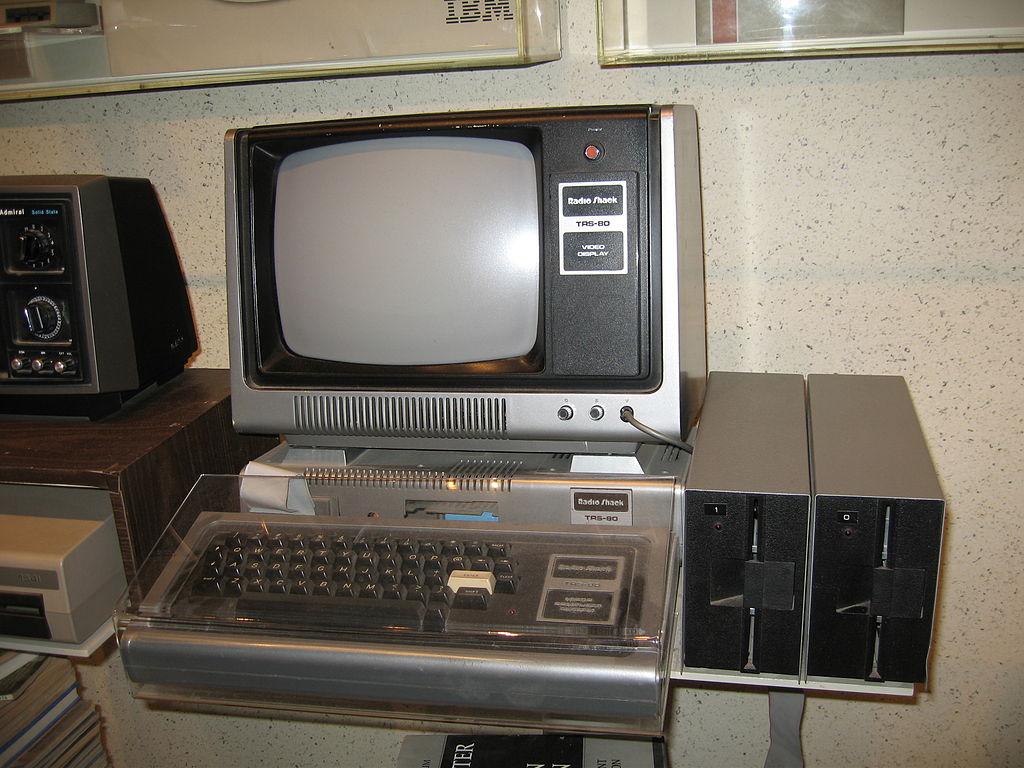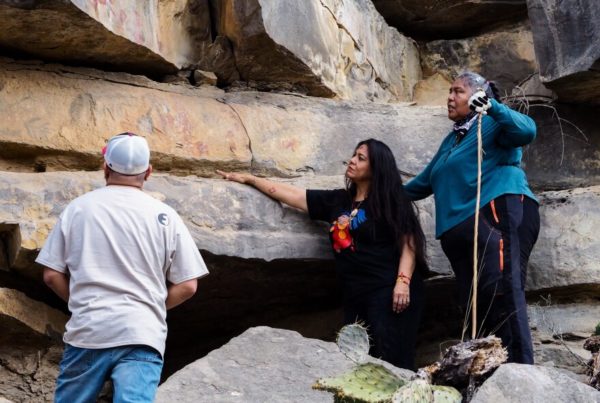At the dawn of the PC age in the late 1970s, devices with names like Apple II and Commodore PET brought computers into the home for the first time. Also among the earliest, and most important home PCs was the Radio Shack TRS-80, sold by a Fort Worth-based leather goods company – the Tandy Corporation. John Roach, the man behind the TRS-80, passed away on March 20.
James R. “Bob” Haggerty wrote about John Roach and the TRS-80 for the Wall Street Journal. Listen to the interview above or read the transcript below.
This transcript has been edited lightly for clarity:
Texas Standard: Tell us a bit more about John Roach. Who was he before he was working on the TRS-80?
James Haggerty: Well, he was a guy who studied at TCU and he got an MBA and he learned about computers. And Tandy hired him as a data processing manager. And that’s what he was doing in the late 70s when this idea came up.
Tandy was a pretty unusual entrant in the personal computer business, wasn’t it?
Yeah, it was a long, long way from Silicon Valley back in the 70s. Personal computers were really things for hobbyists. Very few people even knew what they were, but you’d buy kits and put them together. And one of these enthusiasts was Donald French, and he said, ‘we ought to start selling these kits at Radio Shack.’
And the rest, I guess, is history, because those TRS-80s started flying off the shelves, even though a lot of people didn’t really have a sense of what computers, or personal computing could do.
Right. And the top management at Tandy, including Mr. Roach, were pretty skeptical about whether there was really a significant market for these products. They sold way faster than Tandy expected. Originally, Charles Tandy, who was the chairman of the company, said, ‘well, make a thousand of these, and if we can’t sell them, we’ll just use them in the stores for something.’
So when people started buying these TRS-80 computers, I recall they were gray and black, not very appealing looking. They had a little CRT screen, right? And there was one of these little fat – it looked like a little portable TV – and a cassette player, usually beside a keyboard.
Why a cassette player?
That was the cheapest means of storage at the time. It’s pretty primitive, but it seemed very high tech at the time.
What was the appeal of this? It was kind of a bare bones basic computer. What would what would people do with it?
Well, they could play games. They could solve simple problems. They could keep track of the inventory of their business. I think a lot of it was just curiosity, and some of it was parents thinking, Oh, this is the future. My kids better learn how to do this.
It seemed like they were the most popular computer for a while there.
They briefly were leading the market. That’s right.
Well, so what ultimately happened with Tandy’s personal computer business? With first mover advantage in a market like personal computing, you would think the TRS-80 would be the foundation stone for something as big as Dell Computers or something, but it didn’t work out that way now.
Well, Tandy was one of many that sort of crashed and burned in this market. Within a few years, IBM showed up with their personal computer and suddenly, it became a game of, everybody has to be compatible with the IBM operating system. And then it became more of a commodity. And many, many of the early leaders fell out of it. So it was no longer a business where Radio Shack could make big profit margins.
Did he have a sense of of his significance – his role in the evolution of the personal computer, do you think?
I think he was proud to have played a role. He was a fairly modest guy, seemingly. He sometimes said, ‘we’re just simple country boys in the computer business.’ I think he rode that rollercoaster and was probably glad to have had the ride.
What did the TRS-80 end, do you think?
I think the fact that they couldn’t adapt fast enough to the changing market and it became a very high stakes, low profit game, which wasn’t what they were signed up for. They were really retailers. They decided in the 90s, we’re just going to go back to retailing. And they doubled down on huge computer stores. Those did not work out, either. And ultimately, the company basically disappeared
When we talk about technology and Texas’s role in it, do you think we should also be talking about the TRS-80? Or is it just an asterisk?
I think it was very important in the early days of the personal computer, and getting people used to the idea of buying a computer for their home or for their office. So it’s definitely a historic and important machine.














